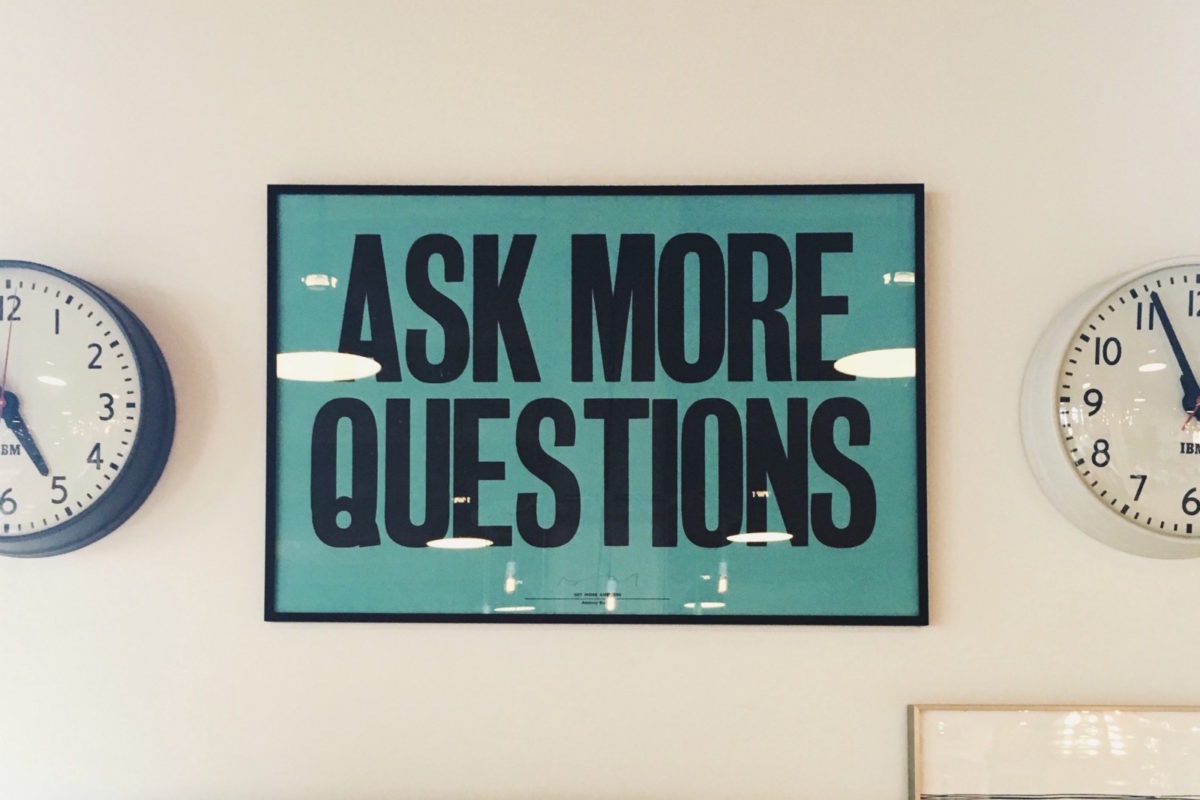You do not have to be a trained coach to start asking powerful questions. In fact, if you want to have an impact on your friends, family, and colleagues, it’s best to stop talking and start asking the right questions.
Knowing who takes decisions and who communicates
You first need to understand at any given time who is talking within yourself, and who is talking within others. And by “within”, I mean:
- The head: our logical side, the should-shouldn’ts
- The heart: our passion and feelings
- The guts: our intuition and what past experiences tell us
If these three were always aligned, there wouldn’t be much need for coaching to exist. The reality is, at times they disagree. And when they do, a lovely internal conflict arises. The head knows, the heart feels, and the guts thinks but is unsure. Now imagine a “head” person talking to a “heart” person. This is not just internal conflict anymore, but proper misunderstanding.
Before you ask a question, think about its purpose, then ask your question
By quickly checking in with yourself on what it is that you’re trying to do, you will know where the question should come from.
- Do you want an information? Ask with the head.
- Do you feel like the person wants to talk about how they are doing? Ask with the heart.
- If something is telling you there’s more behind what is being said, ask with the guts.
It is particularly useful for people who feel stuck and don’t know what to do with their life, when they find excuses, when they keep repeating unhealthy behaviours. If you ask a question with the head, you will get an answer from the head. For reflective people who spend a lot of time up there, they’ll just share what they already know. So instead of telling them what to do (that never works), help them explore from a different perspective.
Here’s a list you can start with
- What is important for you?
- What’s the purpose?
- What does it mean to you?
- What are you the most proud of?
- How do you feel about (XYZ)?
- What did you learn from (XYZ)?
- What could you do differently next time?
- What do you want to do about it?
- What are you going to do first?
- What do you want to achieve?
- How do you want to get there?
- What resources do you need? What else?
- Who can support you?
- What are your options?
- What is under your control? What is out of your control?
- What do you want to change?
- What would you try now if you knew you could not fail?
- What’s the worst that can happen, and how will you handle that?
- What’s the first step you need to take to reach your goal?
- What do you need in order to succeed?
- What is stopping you from doing (XYZ)?
- What does success look like?
Wait, which ones are from the head, the heart, and the gut?
That’s where my job stops and yours starts: you’ll see in the moment. It depends on many factors like how you are feeling, who is involved in the conversation, the context, the topic, etc. My only advice here is to connect wirh your body as the conversation goes: are you feeling something in your chest or in your stomach? It will be a good indicator of where the next question should come.
The more you practice, the easier it will get. Remember that it’s a skill to learn, not an innate ability. Good luck and happy questioning.

